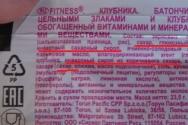Brief biography of Fyodor Tyutchev. Life and work of Tyutchev
Fyodor Ivanovich Tyutchev (1803−1873) - Russian poet. Also known as a publicist and diplomat. Author of two collections of poems, winner of a number of the highest state titles and awards. Currently, Tyutchev’s works are compulsorily studied in several classes. secondary school. The main thing in his work is nature, love, Motherland, and philosophical reflections.
In contact with
Brief biography: early life and training
Fyodor Ivanovich was born on November 23, 1803 (December 5, old style) in the Oryol province, in the Ovstug estate. The future poet received his primary education at home, studying Latin and ancient Roman poetry. His childhood years largely predetermined Tyutchev’s life and work.
As a child, Tyutchev loved nature very much; according to his memoirs, he “lived the same life with it.” As was customary at that time, the boy had a private teacher, Semyon Egorovich Raich, a translator, poet and simply a person with a broad education. According to the memoirs of Semyon Yegorovich, it was impossible not to love the boy, the teacher became very attached to him. Young Tyutchev was calm, affectionate, and talented. It was the teacher who instilled in his student a love of poetry, taught him to understand serious literature, and encouraged creative impulses and the desire to write poetry on his own.
Fyodor's father, Ivan Nikolaevich, was a gentle, calm, reasonable person, a real role model. His contemporaries called him a wonderful family man, a good, loving father and husband.
The poet's mother was Ekaterina Lvovna Tolstaya, second cousin of Count F. P. Tolstoy, the famous sculptor. From her, young Fedor inherited dreaminess and a rich imagination. Subsequently, it was with the help of his mother that he met other great writers: L.N. and A.K. Tolstoy.
At the age of 15, Tyutchev entered Moscow University in the department of literature, from which he graduated two years later with the degree of candidate of literary sciences. From that moment on, his service began abroad, at the Russian embassy in Munich. During his service, the poet made personal acquaintance with the German poet, publicist and critic Heinrich Heine, and the philosopher Friedrich Schelling.
In 1826, Tyutchev met Eleanor Peterson, his future wife. One of interesting facts about Tyutchev: at the time of meeting the poet, the young woman had already been a widow for a year, and she had four young sons. Therefore, Fyodor and Eleanor had to hide their relationship for several years. They subsequently became the parents of three daughters.
Interesting, that Tyutchev did not dedicate poems to his first wife; Only one poem dedicated to her memory is known.
Despite his love for his wife, according to biographers, the poet had other connections. For example, in the winter of 1833, Tyutchev met Baroness Ernestina von Pfeffel (Dernberg in his first marriage), became interested in the young widow, and wrote poetry for her. To avoid scandal, the loving young diplomat had to be sent to Turin.
 The poet's first wife, Eleanor, died in 1838. The steamer on which the family sailed to Turin suffered a disaster, and this seriously undermined the young woman’s health. This was a great loss for the poet; he sincerely grieved. According to contemporaries, after spending the night at his wife’s coffin, the poet turned gray in just a few hours.
The poet's first wife, Eleanor, died in 1838. The steamer on which the family sailed to Turin suffered a disaster, and this seriously undermined the young woman’s health. This was a great loss for the poet; he sincerely grieved. According to contemporaries, after spending the night at his wife’s coffin, the poet turned gray in just a few hours.
However, having endured the required period of mourning, a year later he resumed his relationship with Ernestina Dernberg and subsequently married her. In this marriage, the poet also had children, a daughter and two sons.
In 1835 Fyodor Ivanovich received the rank of chamberlain. In 1839, he stopped diplomatic activities, but remained abroad, where he did a lot of work, creating a positive image of Russia in the West - this was the main task of this period of his life. All his endeavors in this area were supported by Emperor Nicholas I. In fact, he was officially allowed to speak independently in the press about political problems arising between Russia and Europe.
The beginning of a literary journey
 In 1810-1820 The first poems of Fyodor Ivanovich were written. As one would expect, they were still youthful, bore the stamp of archaism, and were very reminiscent of the poetry of a bygone century. In 20−40 years. the poet turned to various forms of both Russian lyrics and European romanticism. His poetry during this period becomes more original and original.
In 1810-1820 The first poems of Fyodor Ivanovich were written. As one would expect, they were still youthful, bore the stamp of archaism, and were very reminiscent of the poetry of a bygone century. In 20−40 years. the poet turned to various forms of both Russian lyrics and European romanticism. His poetry during this period becomes more original and original.
In 1836, a notebook with poems by Fyodor Ivanovich, then unknown to anyone, came to Pushkin.
The poems were signed with only two letters: F. T. Alexander Sergeevich liked them so much that they were published in Sovremennik. But the name Tyutchev became known only in the 50s, after another publication in Sovremennik, which was then headed by Nekrasov.
In 1844, Tyutchev returned to Russia, and in 1848 he was offered the position of senior censor at the Ministry of Foreign Affairs. At that time, Belinsky's circle emerged, in which the poet took an active part. Together with him there are such famous writers, like Turgenev, Goncharov, Nekrasov.
In total, he spent twenty-two years outside Russia. But all these years Russia appeared in his poems. It was “Fatherland and Poetry” that the young diplomat loved most, as he admitted in one of his letters. At this time, however, Tyutchev almost did not publish, and as a poet he was completely unknown in Russia.
Relations with E. A. Deniseva
 While working as a senior censor, while visiting his eldest daughters, Ekaterina and Daria, at the institute, Fyodor Ivanovich met Elena Alexandrovna Denisyeva. Despite the significant difference in age (the girl was the same age as his daughters!), they began a relationship that ended only with the death of Elena, and three children appeared. Elena had to sacrifice many for the sake of this connection: the career of a maid of honor, relationships with friends and father. But she was probably happy with the poet. And he dedicated poems to her - even fifteen years later.
While working as a senior censor, while visiting his eldest daughters, Ekaterina and Daria, at the institute, Fyodor Ivanovich met Elena Alexandrovna Denisyeva. Despite the significant difference in age (the girl was the same age as his daughters!), they began a relationship that ended only with the death of Elena, and three children appeared. Elena had to sacrifice many for the sake of this connection: the career of a maid of honor, relationships with friends and father. But she was probably happy with the poet. And he dedicated poems to her - even fifteen years later.
In 1864, Denisyeva died, and the poet did not even try to hide the pain of his loss in front of his acquaintances and friends. He suffered from pangs of conscience: due to the fact that he put his beloved in an ambiguous position, he did not fulfill his promise to publish a collection of poems dedicated to her. Another grief was the death of two children, Tyutchev and Deniseva.
During this period, Tyutchev was promoted quite quickly:
- in 1857 he was appointed full-time state councilor;
- in 1858 - chairman of the Foreign Censorship Committee;
- in 1865 - Privy Councilor.
Besides, the poet was awarded several orders.
Collections of poems
In 1854, the first collection of the poet’s poems was published, edited by I. S. Turgenev. The main themes of his work:
- nature;
- Love;
- Homeland;
- meaning of life.
 In many poems one can see a tender, reverent love for the Motherland and worries about its fate. Reflected in creativity and political position Tyutchev: the poet was a supporter of the ideas of pan-Slavism (in other words, that all Slavic peoples would unite under the rule of Russia), an opponent of the revolutionary way of solving problems.
In many poems one can see a tender, reverent love for the Motherland and worries about its fate. Reflected in creativity and political position Tyutchev: the poet was a supporter of the ideas of pan-Slavism (in other words, that all Slavic peoples would unite under the rule of Russia), an opponent of the revolutionary way of solving problems.
In 1868, the second collection of the poet’s lyrics was published, which, unfortunately, turned out to be no longer so popular.
All the poet’s lyrics - landscape, love, and philosophical - are necessarily imbued with reflections on what the purpose of man is, on questions of existence. It cannot be said that any of his poems are dedicated only to nature and love: all his themes are intertwined. Every poem by a poet- this is, at least briefly, but necessarily a reflection on something, for which he was often called a poet-thinker. I. S. Turgenev noted how skillfully Tyutchev depicts the various emotional experiences of a person.
Poetry recent years They resemble rather a lyrical diary of life: here are confessions, reflections, and confessions.
 In December 1872, Tyutchev fell ill: his vision deteriorated sharply, and the left half of his body was paralyzed. On July 15, 1873, the poet died. He died in Tsarskoe Selo and was buried at the Novodevichy cemetery in St. Petersburg. Over the course of his entire life, the poet wrote about 400 poems.
In December 1872, Tyutchev fell ill: his vision deteriorated sharply, and the left half of his body was paralyzed. On July 15, 1873, the poet died. He died in Tsarskoe Selo and was buried at the Novodevichy cemetery in St. Petersburg. Over the course of his entire life, the poet wrote about 400 poems.
Interesting fact: in 1981, asteroid 9927 was discovered at the Crimean Astrophysical Observatory, which was named after the poet - Tyutchev.
Fyodor Ivanovich Tyutchev belongs to the galaxy of poets of the Golden Age, when Russian literature experienced its period of greatest prosperity. The poems he wrote were among the best examples of our literature, and selected works are studied as part of the school curriculum.
Initially, writing poetry was for Tyutchev only a way to pour out his emotional experiences on paper, but one day a turning point occurred and he began to publish his poems in magazines. Literary critics received them with admiration, and the great Russian poet Alexander Sergeevich Pushkin took upon himself the honor of publishing Tyutchev’s poems in the Sovremennik magazine.
Life path
The Tyutchevs were wealthy noble family and lived in the Oryol province, on the territory of the Ovstug estate. Fyodor Ivanovich was born on November 23, 1803.
His parents were able to give him an excellent education. At a young age, he had an excellent command of French and Latin, and also actively studied ancient Roman poetry. His teacher, Rajic, paid Special attention nurturing a love of literature in a boy.
At the age of 15, Tyutchev began attending lectures at Moscow University on literature. Later he was able to enter there and study his favorite discipline as a student. Around the same time, the future poet was invited to the Society of People Who Love Russian Literature.
As a teenager and young man, Tyutchev wrote poetry, but did not show it to anyone. These works turned out to be very archaic and more in line with the realities of the previous century than with modern trends.
In 1822, Tyutchev graduated from the university and was accepted into the College of Foreign Affairs. His place of residence and work was the Bavarian city of Munich, which Tyutchev even considered his home for some time. He had to live far from the Fatherland for 22 long years.
At the same time, Tyutchev retained his love for his native speech and he actively wrote new poems. But he did not like to publish due to his excessive vulnerability to any criticism. And the first attempts to present his poems to the public, which he made as a teenager, were unsuccessful and the public accepted them without much enthusiasm.
In the period from 1836 to 1838, Tyutchev’s poems were published in Pushkin’s magazine Sovremennik, but critics did not pay attention to them and the poet saw no point in continuing to publish.
His wife died in Munich, but he did not remain a widower for long and married a German woman from Bavaria. After some time, Fyodor Ivanovich was transferred to work in the city of Turin, located on the territory of the Sardinian kingdom. He left without permission and was expelled from the diplomatic body because of this.
Despite attempts to stay in Munich, there was no legal basis for further stay in the city and he went back to Russia in 1844. During the revolutionary activity of 1848, he expressed loyalty to the authorities and showed himself as a conservative pan-Slavist.
In the same year, he became a senior censor and joined Belinsky's circle, where he met Nekrasov, Turgenev and Goncharov. In 1854, a book with Tyutchev’s poems was published, which gave him long-awaited celebrity and recognition.
Tyutchev was a very loving person and cheated on his wife with different women. This led to several scandals, and in 1865 his wife died. Fyodor Ivanovich experienced indescribable moral suffering after this event and repented of what he had done.
In 1873, Tyutchev left this world, giving his soul to God in Tsarskoe Selo.
Creative path
There are three creative periods in Tyutchev’s activity:
- 1810-1820: poetic obscurity. He writes poetry exclusively for himself, makes timid attempts to get published, but fails.
- 1820-1840: attracted the attention of Pushkin, poems were published in the Sovremennik magazine.
- 1850-1870: Tyutchev’s work received public recognition, and his poems received the highest marks from critics.
During the initial period, Tyutchev wrote such poems as “Vision”, “Insomnia” and “Vision”. They were published in the Galatea magazine, which was published by Rajic. Due to the outdated presentation format, the poems were not popular and passed by the audience.
During the second period, someone advised Tyutchev to send his poems to the strict court of the master of Russian poetry, Alexander Sergeevich Pushkin. They delighted the great poet and were published in the Sovremennik magazine. However, this time the audience turned out to be very whimsical.
In the period from 1848 to 1850, Tyutchev wrote the poetry “Reluctantly and timidly”, “Russian woman” and “When in the circle of murderous worries”. They received a warm welcome from the public and inspired the poet to continue his work.
Then a collection of poems was published, which included “Spring Waters”, “Winter Enchantress” and “Autumn. Tyutchev loved to pay attention to nature in his work.
Total great poet wrote 400 poems that were included in the golden fund of Russian classical literature.
Tyutchev is one of the outstanding poets of the nineteenth century. His poetry is the embodiment of patriotism and great sincere love for the Motherland. The life and work of Tyutchev is the national heritage of Russia, the pride of the Slavic land and an integral part of the history of the state.
The beginning of the poet's life
The life of Fyodor Tyutchev began on December 5, 1803. The future poet was born in a family estate called Ovstug. Fyodor Ivanovich began to receive home education, studied Latin and ancient Roman poetry. At twelve years old, the boy was already translating Horace’s odes. In 1817 Tyutchev attended lectures at Moscow University (in the department of Literature).
The young man received his graduation certificate in 1821. It was then that he enlisted and was sent to Munich. He returned only in 1844.
Periodization of creative periods
The first period of creativity of Fyodor Ivanovich Tyutchev lasts from the 1810s to the 1820s. At this time, the young poet wrote his first poems, which in style resemble the poetry of the eighteenth century.

The second period begins in the second half of the 1820s and lasts until the 1840s. The poem entitled “Glimmer” already has an original Tyutchev character, which combines Russian odic poetry of the eighteenth century and traditional European romanticism.
The third period covers the 1850s - 1870s. It is characterized by the creation of a number of political poems and civil treatises.
Russia in the works of Tyutchev
Upon returning to his homeland, the poet took the position of senior censor at the Ministry of Foreign Affairs. Almost simultaneously with this, he joined Belinsky’s circle and became an active participant. Poems are being shelved for now, but a number of articles are being published on French. Among the many treatises there are “On Censorship in Russia”, “The Papacy and the Roman Question”. These articles are chapters to a book called “Russia and the West,” which Tyutchev wrote, inspired by the revolution of 1848-1849. This treatise contains the image of the thousand-year-old power of Russia. Tyutchev describes his Motherland with great love, expressing the idea that it is exclusively Orthodox in nature. This work also presents the idea that the whole world consists of revolutionary Europe and conservative Russia.

Poetry also takes on a slogan connotation: “To the Slavs”, “Vatican Anniversary”, “Modern” and other poems.
Many works reflect that which is inseparable from love for the Motherland. Tyutchev had such faith in Russia and its strong inhabitants that he even wrote to his daughter in letters that she could be proud of her people and that she would certainly be happy, if only because she was born Russian.
Turning to nature, Fyodor Ivanovich glorifies his Motherland, describes every dewdrop on the grass so that the reader is imbued with the same tender feelings for his land.
The poet always managed to maintain free thoughts and feelings; he did not submit to secular morality and ignored secular decency. Tyutchev's work is shrouded in love for all of Russia, for every peasant. In his poems, he calls it the European “ark of salvation,” but he blames the king for all the troubles and losses of his great people.
Life and work of Tyutchev
Creative path Fyodor Ivanovich covers more than half a century. During this time, he wrote many treatises and articles, including on foreign languages. Three hundred poems created by Tyutchev are placed in one book.
Researchers call the poet a late romantic. Tyutchev’s work has a special character also because he lived abroad for a long time, because of this the author felt lost and alienated for many years.

Some historians and literary critics conditionally divide the life of Fyodor Ivanovich into two stages: 1820-1840. and 1850-1860
The first stage is devoted to the study of one’s own “I”, the formation of a worldview and the search for oneself in the Universe. The second stage, on the contrary, is an in-depth study of the inner world of one person. Critics call the “Denisevsky cycle” the main achievement of this period.
The main part of Fyodor Tyutchev's lyrics are poems that are philosophical, landscape-philosophical in nature and, of course, love theme. The latter also includes the poet’s letters to his lovers. Tyutchev's creativity also includes civil and political lyrics.
Tyutchev's love lyrics
The 1850s are characterized by the emergence of a new specific character. It becomes a woman. Love in Tyutchev’s work acquired concrete outlines; this is most noticeable in such works as “I Knew My Eyes”, “Oh, How Deadly We Love” and “ last love" The poet begins to study female nature, strives to understand her essence and comprehends her fate. Tyutchev's beloved girl is a person who is characterized by sublime feelings along with anger and contradictions. The lyrics are permeated with the pain and torment of the author, there is melancholy and despair. Tyutchev is convinced that happiness is the most fragile thing on earth.
"Denisevsky cycle"
This cycle also has another name - “love-tragedy”. All the poems here are dedicated to one woman - Elena Alexandrovna Deniseva. The poetry of this cycle is characterized by the understanding of love as a real human tragedy. Feelings here act as a fatal force that leads to devastation and subsequent death.

Fyodor Ivanovich Tyutchev did not take any part in the formation of this cycle, and therefore there are disputes between literary critics about who the poems are dedicated to - Elena Denisyeva or the poet’s wife - Ernestine.
The similarities have been repeatedly emphasized love lyrics“Denisevsky cycle”, which is confessional in nature, and painful feelings in the novels of Fyodor Dostoevsky. Today, almost one and a half thousand letters written by Fyodor Ivanovich Tyutchev to his beloved have survived.
Nature theme
Nature in Tyutchev’s works is changeable. She never knows peace, constantly changes and is always in the struggle of opposing forces. Being in a continuous change of day and night, summer and winter, it is so multifaceted. Tyutchev spares no epithets to describe all its colors, sounds, and smells. The poet literally humanizes it, making nature so close and related to every person. At any time of the year, everyone will find features characteristic of them; they will recognize their mood in the weather.

Man and nature are inseparable in creativity, and therefore his lyrics are characterized by a two-part composition: the life of nature is parallel to the life of man.
The peculiarities of Tyutchev’s work lie in the fact that the poet does not try to see the world through photographs or paints of artists, he endows him with a soul and tries to discern in him a living and intelligent being.
Philosophical motives
Tyutchev's work is philosophical in nature. Poet with early years was convinced that the world contained some incomprehensible truth. In his opinion, words cannot express the secrets of the universe; text cannot describe the mystery of the universe.
He seeks answers to the questions that interest him by drawing parallels between human life and the life of nature. By combining them into a single whole, Tyutchev hopes to learn the secret of the soul.
Other themes of Tyutchev’s work
Tyutchev's worldview has one more characteristic feature: the poet perceives the world as a dual substance. Fyodor Ivanovich sees two principles constantly fighting among themselves - the demonic and the ideal. Tyutchev is convinced that the existence of life is impossible in the absence of at least one of these principles. Thus, in the poem “Day and Night” the struggle of opposites is clearly expressed. Here the day is filled with something joyful, vital and infinitely happy, while the night is the opposite.
Life is based on the struggle between good and evil, in the case of Tyutchev's lyrics - the light beginning and the dark. According to the author, there is no winner or loser in this battle. And this is the main truth of life. A similar struggle occurs within a person himself; all his life he strives to learn the truth, which can be hidden both in his bright beginning and in his dark one.

From this we can conclude that Tyutchev’s philosophy is directly related to global problems, the author does not see the existence of the ordinary without the great. In every microparticle he considers the mystery of the universe. Fyodor Ivanovich Tyutchev reveals all the beauty of the world around us as a divine cosmos.
Fyodor Ivanovich Tyutchev. Born on November 23 (December 5), 1803 in Ovstug, Bryansk district, Oryol province - died on July 15 (27), 1873 in Tsarskoe Selo. Russian poet, diplomat, conservative publicist, corresponding member of the St. Petersburg Academy of Sciences since 1857.
Fyodor Ivanovich Tyutchev was born on December 5, 1803 in the family estate of Ovstug, Oryol province. Tyutchev was educated at home. Under the guidance of the teacher, poet and translator S.E. Raich, who supported the student’s interest in versification and classical languages, Tyutchev studied Latin and ancient Roman poetry, and at the age of twelve he translated the odes of Horace.
In 1817, as a volunteer student, he began attending lectures at the Department of Literature at Moscow University, where his teachers were Alexey Merzlyakov and Mikhail Kachenovsky. Even before enrollment, he was accepted as a student in November 1818, and in 1819 he was elected a member of the Society of Lovers of Russian Literature.
Having received a university graduation certificate in 1821, Tyutchev entered the service of the State College of Foreign Affairs and went to Munich as a freelance attaché of the Russian diplomatic mission. Here he met Schelling and Heine and in 1826 married Eleanor Peterson, née Countess Bothmer, with whom he had three daughters. The eldest of them, Anna, later marries Ivan Aksakov.
The steamship "Nicholas I", on which the Tyutchev family is sailing from St. Petersburg to Turin, suffers a disaster in the Baltic Sea. During the rescue, Eleanor and the children are helped by Ivan Turgenev, who was sailing on the same ship. This disaster seriously damaged the health of Eleanor Tyutcheva. In 1838 she dies. Tyutchev is so sad that, after spending the night at the coffin of his late wife, he allegedly turned gray in a few hours. However, already in 1839, Tyutchev married Ernestina Dernberg (née Pfeffel), with whom, apparently, he had a relationship while still married to Eleanor. Ernestine's memories have been preserved of a ball in February 1833, at which her first husband felt unwell. Not wanting to stop his wife from having fun, Mr. Dernberg decided to go home alone. Turning to the young Russian with whom the baroness was talking, he said: “I entrust my wife to you.” This Russian was Tyutchev. A few days later, Baron Dörnberg died of typhus, the epidemic of which was sweeping Munich at that time.
In 1835 Tyutchev received the rank of chamberlain. In 1839, Tyutchev's diplomatic activities were suddenly interrupted, but until 1844 he continued to live abroad. In 1843, he met with the all-powerful head of the III department of His Imperial Majesty's Own Chancellery A.H. Benckendorff. The result of this meeting was Emperor Nicholas I’s support for all Tyutchev’s initiatives in the work to create a positive image of Russia in the West. Tyutchev was given the go-ahead to speak independently in the press on political problems of relations between Europe and Russia.
Nicholas I’s anonymously published article “Letter to Mr. Doctor Kolb” (“Russia and Germany”; 1844) aroused great interest of Nicholas I. This work was presented to the emperor, who, as Tyutchev told his parents, “found all his thoughts in it and allegedly asked who its author was.”

Returning to Russia in 1844, Tyutchev again entered the Ministry of Foreign Affairs (1845), where from 1848 he held the position of senior censor. Being one, he did not allow the Communist Party manifesto to be distributed in Russia in Russian, declaring that “those who need it will read it in German.”
Almost immediately upon his return, F.I. Tyutchev actively participated in Belinsky’s circle.
Without publishing any poems during these years, Tyutchev published journalistic articles in French: “Letter to Mr. Doctor Kolb” (1844), “Note to the Tsar” (1845), “Russia and the Revolution” (1849), “Papacy and the Roman question" (1850), as well as later, already in Russia, an article written "On censorship in Russia" (1857). The last two are one of the chapters of the unfinished treatise “Russia and the West,” conceived by him under the influence of the revolutionary events of 1848-1849.
In this treatise, Tyutchev creates a kind of image of the thousand-year-old power of Russia. Explaining his “doctrine of empire” and the nature of the empire in Russia, the poet noted its “Orthodox character.” In the article “Russia and the Revolution,” Tyutchev advanced the idea that in “ modern world“There are only two forces: revolutionary Europe and conservative Russia. The idea of creating a union of Slavic-Orthodox states under the auspices of Russia was also presented here.
During this period, Tyutchev’s poetry itself was subordinated to state interests, as he understood them. He creates many “rhymed slogans” or “journalistic articles in verse”: “Gus at the stake”, “To the Slavs”, “Modern”, “Vatican anniversary”.
On April 7, 1857, Tyutchev received the rank of full state councilor, and on April 17, 1858, he was appointed chairman of the Committee of Foreign Censorship. In this post, despite numerous troubles and clashes with the government, Tyutchev remained for 15 years, until his death. On August 30, 1865, Tyutchev was promoted to Privy Councilor, thereby reaching the third, and in fact even the second level in the state hierarchy of officials.
During his service, he received 1,800 chervonets in gold and 2,183 rubles in silver as awards (bonuses).
Until the very end, Tyutchev was interested in the political situation in Europe. On December 4, 1872, the poet lost freedom of movement with his left hand and felt a sharp deterioration in his vision; he began to experience excruciating headaches. On the morning of January 1, 1873, despite the warnings of others, the poet went for a walk, intending to visit friends. On the street he suffered a blow that paralyzed the entire left half of his body.
On July 15, 1873, Tyutchev died in Tsarskoye Selo. On July 18, 1873, the coffin with the poet’s body was transported from Tsarskoe Selo to St. Petersburg and buried in the cemetery of the Novodevichy Convent.
Years of Tyutchev’s life: 1803-1873. During this time, the famous Russian poet, publicist, diplomat and prominent thinker of the 19th century came a long way, who still remains one of the main classics of Russian literature. People get acquainted with his work at school, but for many it remains attractive even in adult life.
Childhood and youth
Every schoolchild today knows the years of Tyutchev’s life. The famous Russian poet was born in 1803 on the territory of the Oryol province. Tyutchev’s birthplace is the village of Ovstug, which is now located in the Bryansk region.
Received home education. His teachers already in childhood supported his interest in languages and poetry. Already at the age of 12, Tyutchev was translating the odes of Horace.
In 1817, he was assigned to a lecture at Moscow University, where he studied in the literature department. At the end of 1818, he was accepted as a student and even elected a member of the Society of Lovers of Russian Literature.
Work abroad
The years of Tyutchev’s life abroad were very eventful. After graduating from the university in 1821, he began working at the College of Foreign Affairs. Almost immediately he was sent to Munich as a freelance attaché at the Russian diplomatic mission.
It is here that the hero of our article meets his first wife, Eleanor Peterson. They had three daughters - Anna, Daria and Ekaterina.
The health of the poet's wife deteriorated greatly after they suffered a disaster on the steamship "Nicholas I", which was heading from St. Petersburg to Turin. They were rescued, but Eleanor's physical condition left much to be desired. In 1838 she died.
For Tyutchev, family and children have always played a big role in life. He spent the whole night near the coffin of the deceased and, according to eyewitnesses, turned gray in just a few hours.
Second marriage
At the same time, the poet quickly found a new wife, who became Ernestina Dernberg. Some biographers suggest that there was a connection between them while he was still married to Eleanor. In 1839 they entered into a legal marriage. They had a daughter, Maria, as well as sons, Ivan and Dmitry.
In 1835, Fyodor Ivanovich Tyutchev received the court title of chamberlain, but soon after his second marriage his diplomatic work was interrupted. At the same time, until 1844 he continued to live abroad.
During this period, the poet met with the all-powerful Benckendorff, the result of which was the support of all Tyutchev’s undertakings and initiatives by Nicholas I. First of all, these were projects related to the creation of a positive image of Russia in Western countries. Fyodor Ivanovich Tyutchev received approval for independent speeches in the international press on political issues, as well as on relations between Russia and Europe.

Return to Russia
You can familiarize yourself with a brief biography of Tyutchev by reading this article. An important place in it is occupied by the return from Europe to serve in Russia, which took place in 1844. The hero of our article began working at the Ministry of Foreign Affairs as a senior censor.
In St. Petersburg, he almost immediately became an active participant in Belinsky’s circle. At the same time, he practically did not publish his poems, but wrote many journalistic works. Among them are the following articles:
- "Note to the Tsar"
- "The Papacy and the Roman Question"
- "Russia and the Revolution"
- "Letter to Mr. Dr. Kolb"
- "On censorship in Russia."

Treatise “Russia and the West”
He included many of these materials in his treatise entitled “Russia and the West,” which he conceived under the influence of the revolutionary events of 1848-1849.
This treatise played a big role, as can be seen by reading short biography Tyutcheva. He created a unique image of a thousand-year-old Russian power. At the same time, the poet formed his own idea of the empire, as well as its character in Russia, which, as the thinker argued, has an Orthodox orientation.
In one of his articles, Tyutchev expressed the idea that in the modern world there are two main forces - conservative Russia and revolutionary Europe. Here he outlined the idea of creating a union of Slavic-Orthodox states.
It is worth noting that at this stage of his life, even the work of Fyodor Tyutchev was subordinated to state interests. This can be seen in the works “Modern”, “Slavs”, “Vatican Anniversary”.

In 1857, Tyutchev received the rank of state councilor, and a year later he was appointed chairman of the foreign censorship committee. In this post, he had to deal with the government more than once and resolve conflict situations. But at the same time, the writer held the position until his death.
In 1865, he was transferred to privy councilor, so he actually reached the second level in the hierarchy of government officials. At the same time, Tyutchev remained keenly interested in the situation in Europe. Even when in 1872 he lost the ability to control his left hand, experienced serious problems with his vision, and was tormented by severe headaches, the writer did not lose interest.
As a result, on the first day of 1873, the poet went for a walk and had a stroke. The entire left side of the body was paralyzed. The years of Tyutchev's life came to an end in Tsarskoye Selo. He died on July 15th. He was buried in St. Petersburg at the cemetery of the Novodevichy Convent.

Creative path
According to researchers, some of the poet's most important works were short poems in which he developed the traditions of Russian poetry laid down by Lomonosov and Derzhavin.
The form in which the poet created his works was often compressed into a short text of an ode. Due to this, he was able to concentrate his efforts as much as possible and maintain tension. All this led to a large number components in the lyrics that make it possible to extremely soulfully convey any tragic sensations of the cosmic contradictions of the reality surrounding man.
In total, Tyutchev wrote about 400 poems. Moreover, all his work can be divided into three parts:

Tyutchev's love lyrics
Love lyrics occupy an important place in the poet’s work. Here it is customary to highlight a number of works that are combined into a love-tragedy cycle. He dedicated most of them to his beloved Elena Denisyeva, with whom the relationship lasted 14 years, they had three children - Elena, Fedor and Nikolai.
In this cycle, the poet tries to comprehend the tragedy of love, a fatal force that leads to death and complete devastation. It is interesting that Tyutchev himself did not formulate the “Denisyev Cycle”, so many researchers are still arguing about who this or that poem is addressed to - Denisyeva or his wife Ernestina.
Signs of love lyrics can also be found in the early Tyutchev, who at the age of 18 turns to the future Baroness Krudener. A striking example is the poem “I remember the golden time...”. Tyutchev was in love in his youth with the baroness, who did not reciprocate his feelings. Unhappy love, as often happens, gave rise to many brilliant poems.








